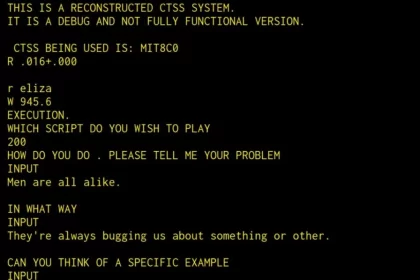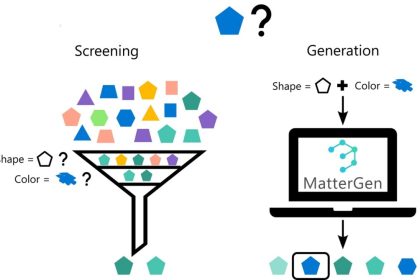Maybe once self-driving cars belonged to science-fiction stories, but today, thanks to artificial intelligence, many dreams have become reality, and self-driving cars have been found on the street; An experience that marked a new era in the automobile industry. In 2017, Elon Musk predicted that it would take ten years for these cars to become widespread, and these days, big brands such as Tesla, Benz, Bosch, Toyota, and Volkswagen are trying to change people’s experience by using this technology. .
Artificial intelligence uses data and machine learning algorithms to replicate and even improve upon human decisions. Applying AI-based solutions increases product value, increases efficiency, and data shows can improve quality of life.
Advantages of artificial intelligence in the automotive industry
Over the past years, automotive industry experts have raised four important issues in the field of intelligentization;
- Automatic driving
- Connecting cars to data sensors
- Car electricity
- Shared transportation service
These fields are the fields in which artificial intelligence plays a key role and has taken a growing trend. Artificial intelligence can improve the user experience, accelerate innovation, and transform the entire cycle of vehicle production and maintenance. It can also collect and process a large amount of information from cars and based on them, provide excellent solutions in the field of car security.
Artificial intelligence helps the automatic driver to recognize the objects around the vehicle well and at the right time and make better decisions. It will also play an effective role in improving the maintenance process and diagnosing the necessary repairs for the car.
Applications of artificial intelligence in cars
The use of artificial intelligence in cars occurs in several fields, which we will mention below;
Driver experience
- Learning and analyzing driving habits
- Reducing distracted driving
- Customer access
- Improve customer experience
Passenger experience
- Improve customer experience
- Personalized access
- In-car delivery
supply chain
- Automatic routing
- Automated decision making for supply chain management
- Market volume forecast
- Anticipation and resupply
Production
- Car assembly
- Information sensors to improve performance
- Optimizing the production chain
- Using robots for difficult and risky tasks
Quality Control
- Detect errors with high accuracy
- Constructive supervision
- Crack or fissure detection
Artificial intelligence in car factories
The increase in competition in the automotive industry has forced manufacturers to invest in better equipment and go to the solutions that artificial intelligence has put in front of them to increase the quality and efficiency of the production cycle. Artificial intelligence helps manufacturers speed up the work process and constantly monitor it, find work defects quickly and improve the quality control process.
Artificial intelligence can help equipment manufacturers reduce production costs and produce safer products with fewer errors. These days, Audi uses artificial intelligence that uses machine vision to detect small cracks in sheet metal within a few seconds.
The following titles are the most important applications of artificial intelligence in the production process;
- Computer vision for defect detection
- Quality control of progress and waste reduction process management
- Proper maintenance of equipment
- Contribute to the design phase, to produce innovative products and discover algorithms to optimize the use of resources and thus create models with better efficiency.
- Simultaneous Localization and Mapping (SLAM) technology is a technology that enables robots to assist in vehicle manufacturing by assembling and moving equipment. The use of this technology can increase the productivity of workers by twenty percent.
Artificial intelligence companion for the driver
One of the most important areas in the application of artificial intelligence in the automotive industry is the benefits of this technology for the driver and car owner, which we will mention below.
Improved driving experience
These days, AI can completely do the driving and help manufacturers produce more efficient cars. Automotive industry leaders are eager to use artificial intelligence-enabled systems as an advantage in their production. Machine vision, natural language processing, and robotic automation are the technologies they use in cars to produce cars that ensure driver safety and operate without human intervention.
In addition to this, inter-car communication technology is also growing, which provides the possibility of connecting each car to an information center and other cars so that they can better understand traffic patterns and the behavior of other drivers and prevent many accidents.
Assessing the condition of the driver
By analyzing the available data from the driving records of the person sitting behind the wheel, artificial intelligence can predict the problems caused by the absence of his mind, and this technology can also evaluate the driver’s mood at the moment based on this information. In the same way, with the help of surveillance systems and smart cameras, artificial intelligence can monitor the driver’s vital signs in order to warn him in case of a problem or take control of things himself.
Help the driver
By using driver-assist technology, we are actually just a few short steps away from fully automatic cars, in this artificial intelligence technology, sensors to monitor blind spots, detect pedestrians, warn the driver and react automatically in time. Risk uses.
Monitor the driver
Artificial intelligence-based software in automatic cars can detect the driver’s presence in the car and can adjust the seat, mirrors and even the temperature when the passenger enters the car. The position of the head and the position of the eyes help this software to check the driver’s sleepiness and even wake him up. This technology even has the ability to adjust the position of the airbag during an accident, so that the driver is less injured.
Proper maintenance of the car
Artificial intelligence can give necessary warnings for repairing and taking care of the car by carefully examining it at any moment. With the help of these systems, you will be aware of the condition of the car at any moment, and the depreciation of the car will also decrease, and you will not face sudden costs due to multiple breakdowns.
Conclusion
The evolution of efficient algorithms, high-performance hardware, and sensors that work with information has enabled the operation of artificial intelligence in the automotive industry. The reality is that automakers must abandon traditional methods and invest in valuable software and information. From machine learning to natural language processing and machine vision, everything can be used in cars and can completely change the game in this industry.
RCO NEWS


















